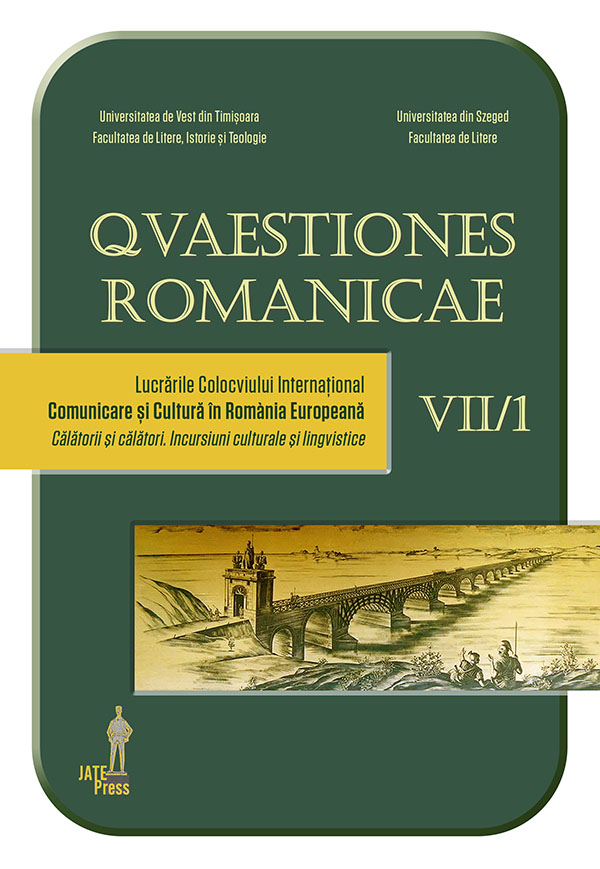Cuvinte și povești
Abstract: (Words and stories) Words say stories. Sometimes their stories are real, sometimes they are imaginary or presumptive, but not less important. The impact of words is like the events they describe: it brightens or saddens the face of a man, it kills or gives life. Man is sensitive to words, because they are the first mediator between him and reality. They have got a story of themselves, too. They cross time surrounding themselves by new meanings or unburdening from others. Sometimes, the story of a word is the history of a culture or civilization, mirroring the mentality of a place or time and telling stories about people. How has the meaning of words changed by passing from one to another language? What histories are kept in their contemporary form? What kind of unpredictable affinities often exist between words? An answer is wanted to be given in this article, by turning our attention on the etymological connection among words as: cosmic and cosmetic, profane and fanatical, or snake, eel and anguish.
Keywords: radical, semantic enlargement, lexical structure, fanatical, cosmos.
Rezumat: Cuvintele spun povești. Uneori, poveștile lor sunt reale, alteori imaginare sau probabile, dar cu nimic mai puțin importante. Impactul cuvintelor este ca și al întâmplărilor pe care le descriu: înseninează fața omului sau o întristează, ucid sau dau viață. Omul este sensibil la cuvinte, fiindcă ele sunt primul intermediar între acesta și realitate. Ele însă au și o poveste a lor. Străbat timpul, înconjurându-se de sensuri noi sau despovărându-se de altele. Uneori, istoria unui cuvânt este istoria unei culturi sau a unei civilizații, oglindind mentalitatea unui loc sau a unui timp și povestind despre oameni. Cum s-a păstrat ori s-a schimbat sensul cuvintelor prin trecerea dintr-o limbă în alta? Ce istorii păstrează înscrise în forma lor actuală? Ce înrudiri adesea nebănuite există între cuvinte? Încercăm un răspuns în articolul de față, oprindu-ne atenția asupra legăturii etimologice dintre termenii cosmos și cosmetică, profan și fanatic sau șarpe, țipar și angoasă.
Cuvinte-cheie: radical, lărgire semantică, structură lexicală, fanatic, cosmos.
